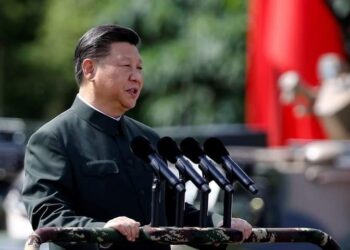The last time I wrote on the insurgency attacks in Borno state I drew attention to the deteriorating security situation and what should be done to subdue the threat and decimate the insurgents. The need to mobilize public support for the counter-insurgency was emphasized because the dispersed insurgents are hibernating among the people and seemingly regrouping to launch surprise ambushes, a typical guerilla strategy. The strategy is apparently a preferred option for the insurgents considering the fact that they are fast losing ground. The Chief of Army Staff, Lt. Gen Tukur Buratai, got it right when he observed that the insurgency cannot be defeated without massive public support to alienate the group.
Another challenge highlighted is the likelihood of fifth columnists exploiting the current situation to engage in acts of sabotage. Intelligence assessment of the ongoing developments reveal that there could be much more desperate attacks on soft and high value targets in the coming months to give the impression that they are still a force to be reckoned with. Also pertinent is the fact that the targets could include top government and security functionaries. Also likely to be attacked are security installations and formations that symbolize state authority.
I also noted that the recent attacks on Borno State Governor, Prof Babagana Umara Zulum (mni) are solely premeditated acts of sabotage. The attacks on the governor’s convoy were very much expected. At a time like this, preventive security counter measures should have been promptly mounted. Among measures that should have been taken include reinforcing protective security measures around the governor, stepping up intelligence gathering related to his movements and likely acts of sabotage being planned by the insurgents and their cohorts. Unfolding developments in Borno state should have prompted a review of all preventive and protective security measures around the governor alongside his colleagues in other North Eastern states because the attention of the insurgents could shift to other governors whose security cover may also be weak, especially Adamawa and Yobe state governors.
The reality of the situation in the Northeast currently is that threats by insurgents have not substantially changed or diminished. Nobody should therefore be deluded that the insurgency in the sub-region has been totally neutralized. Although the insurgency has been substantially degraded due to measures taken by the security forces and governments, much still needs to be done. For obvious reasons, the insurgents are much more determined, desperate and emboldened. The hands of the Islamic State West African Province could also be seen in the recent attacks. An informed intelligence reading of the current situation will indicate more attacks in the coming months.
The other critical requirement is the protection and competence of the security operatives in the battlefront and around their principals. The possibility of their competence and will to defeat attacks being exploited by the insurgents to show that they are still a force to be reckoned with should not be ruled out. It should be noted that the insurgents are increasingly deploying Improvised Explosive Devices to weaken the commitment of the security forces. There could also be desperate attacks on public places to achieve maximum casualty and publicity. Given the current state of affairs, there should, as previously advised, be a holistic change in strategy and well planned neutralizing of the onslaught by the insurgents. The citizenry should be factored into all efforts to contain the situation because counter insurgency wars cannot be won only by deploying security forces. Stepped up intelligence gathering vital to fight the insurgency and protect the citizenry depend a lot on citizen’s involvement and support. This is particularly very critical in intelligence sourcing. Community leaders, institutions and others who wield enormous influence on the citizenry definitely need to be mobilized and empowered to support efforts to defeat the insurgency. Acquiring actionable intelligence is a strategic requirement in the ongoing efforts which, incidentally, is lacking in the ongoing efforts.
It must therefore be emphasized that for the ongoing efforts to succeed, the operational requirements of the security forces should urgently be addressed. The most critical of these are acquisition of cutting edge technology, boosting the strength of counter intelligence operatives and deployment of drones, helicopter gunships and advanced surveillance capabilities. The security forces particularly need to be a better equipped and highly motivated fighting force. It is generally agreed that the President Muhammadu Buhari Government has significantly enhanced the capabilities of the Nigerian Airforce and the Nigerian Army in the last three years, thereby changing the course of the war. If the ongoing efforts to equip the security forces are sustained, the end of the the insurgency is in sight. As observed earlier, the other requirement for winning the war is denying the insurgents public support, hence the need to mobilize the citizenry.
Considering the nature and level of the current security threats, the need to enhance the effectiveness of the security forces by robust motivation and lethal weaponry cannot be over-emphasized. Although the government and the leadership of the security forces are going to great lengths to boost the morale of their officers and men, more can and should be done. The leadership of the security forces should in my view exploit the supportive disposition of the President Muhammadu Buhari government to neutralize plans to plunge the country into avoidable chaos.
It also needs to be stressed that while some of the recent incidences in Borno state, especially the ambush on Governor Babagana Umara Zulum should not be an occasion for apportioning blames, there is need for objective self introspection and total review of protective security measures around those that could be targets of terrorist attacks. It is my candid view that everything should be done to protect very important state officials, especially the Borno state governor. The attacks definitely will not relent so security measures around the Governors as high risk individuals should be strengthened. Priority should be accorded protective security intelligence, technology driven protective security measures and well trained and physically agile security operatives around the governors. It should meanwhile be emphasized that protective security practice is not an all comers affair. The practice of deploying mentally and physically unfit operatives for protective security duties should be jettisoned. Only those with the requisite training in intelligence, the flair to interpret situations and the agility to promptly respond should be deployed. Also, in the light of the recent developments, all high risk individuals should learn to heed to security advice. High risk individuals should stop playing to the gallery and disregarding security advisory.
It is also important to appreciate the fact that in a war of this nature, pacification of the entire security environment is necessary. Striving to defeat the insurgency on all fronts should remain the goal. Zulum is today the most endangered person in the targets of the Boko Haram/ISWAP insurgents. This is because of his style of leadership of giving the people hope and identifying with the plight of the common people. It is in this light that the governor should be protected at all costs. Also very important is supporting the president and Borno state governor in providing the needed leadership at such a trying time.
Gadzama, OFR, mni is the chairman of the Governing Board, National Institute of Security Studies.



